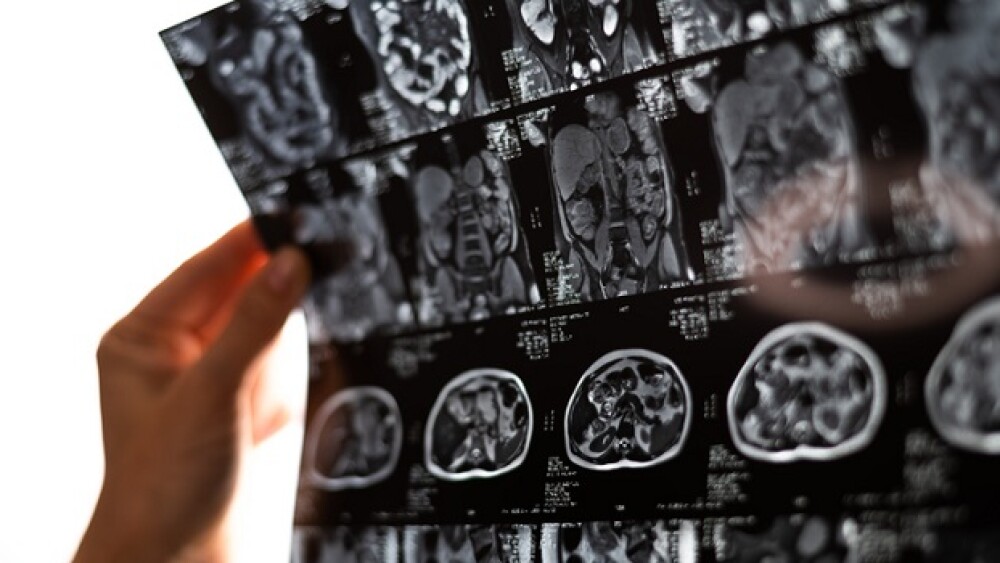Results from Phase IIb VOYAGE study showed Viking’s oral thyroid beta receptor agonist cut liver fat content by up to 51% in confirmed non-alcoholic steatohepatitis patients.
Pictured: Imaging of liver/Research/Getty Stock Images
Top-line data from the Phase IIb VOYAGE study show Viking Therapeutics’ candidate VK2809 achieved its primary endpoint, significantly reducing liver fat in patients with biopsy-confirmed non-alcoholic steatohepatitis (NASH), the company announced Tuesday.
After 12 weeks of treatment, patients treated with Viking’s candidate at a 2.5-mg daily dose saw a 45.3% decrease in liver fat content, as measured by proton density fat fraction calculated by magnetic resonance imaging. Meanwhile, liver fat only dropped by 3.7% in placebo comparators. The resulting treatment effect was statistically significant, according to the company’s press release.
VK2809 given at 5-mg and 10-mg doses every other day likewise demonstrated significant superiority over placebo, cutting liver fat content by 36.8% and 51.7% at 12 weeks, respectively.
“We believe these data provide further evidence of VK2809’s highly targeted delivery into liver tissue, which is an important differentiating characteristic of the molecule and a competitive advantage compared to other agents in development for NASH,” Brian Lian, CEO of Viking Therapeutics, said in an investor call Tuesday morning.
Designed to be orally available, VK2809 is a highly selective agonist of the thyroid beta receptor that also demonstrates strong selectivity for liver tissue.
In VOYAGE, a randomized, double-blinded and placebo-controlled study, Viking leveraged VK2809’s mechanism of action to reduce liver fat content in 337 patients with biopsy-confirmed NASH and fibrosis. The study enrolled patients with at least 8% liver fat content at baseline and those with moderate to severe scarring of the liver.
Aside from treatment effect on liver fat, VOYAGE also evaluated VK2809’s efficacy in terms of plasma biomarkers and found that treated patients had significant placebo-adjusted drops in low-density lipoprotein cholesterol, triglycerides and other atherogenic markers such as apolipoproteins B and C-III. These plasma lipid improvements translate to a better cardiometabolic profile and could help ward off cardiovascular diseases and related events, according to the company statement.
As for safety, VK2809’s overall profile reflected good gastrointestinal tolerability and predominantly mild or moderate treatment-related side effects. One serious adverse event was reported: a patient with a history of psychiatric problems experienced worse symptoms after receiving the candidate.
The company will continue to analyze data from VOYAGE, with histology data expected in the first half of 2024, Lian said during the call.
Viking is also evaluating VK2809 as a treatment for non-alcoholic fatty liver disease and elevated low-density lipoprotein cholesterol.
Tristan Manalac is an independent science writer based in metro Manila, Philippines. He can be reached at tristan@tristanmanalac.com or tristan.manalac@biospace.com.






